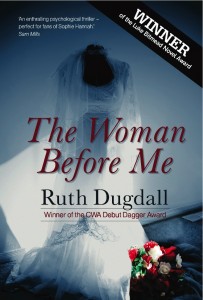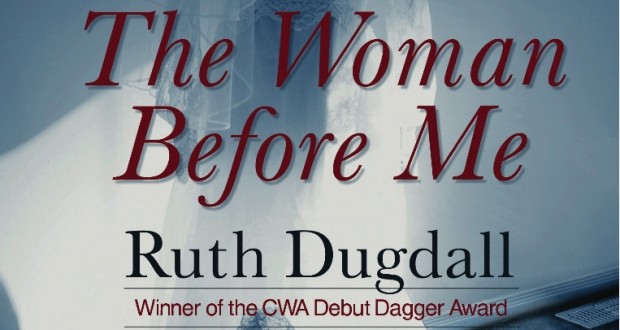I was excited to review a debut novel from independent publisher Legend Press when they sent me my very first review copy. Legend Press was set up in 2005 and has since become one of the most successful start-ups in the last 30 years. I met Tom Chalmers, the man behind the publisher, while doing a diploma of Creative Writing at Oxford University, and have since followed the progress of his indie publisher with great interest.
 It is great to see some publishers still accepting unsolicited manuscripts and further supporting unpublished talent with initiatives such as the Luke Bitmead Bursary (a prize for previously unpublished authors, comprising of a contract with Legend Press and £2500 cash). Chalmers and Legend Press have also set up IPR License and Write Connections to help writers network, learn more about the submissions process, contracts, and help with the writing process in general. All in all, Legend Press is a great publisher that has become a positive force amongst the daunting world of modern publishing.
It is great to see some publishers still accepting unsolicited manuscripts and further supporting unpublished talent with initiatives such as the Luke Bitmead Bursary (a prize for previously unpublished authors, comprising of a contract with Legend Press and £2500 cash). Chalmers and Legend Press have also set up IPR License and Write Connections to help writers network, learn more about the submissions process, contracts, and help with the writing process in general. All in all, Legend Press is a great publisher that has become a positive force amongst the daunting world of modern publishing.
The book’s success
Ruth Dugdall won the second Luke Bitmead Bursary prize with The Woman Before Me, and she has had great success with Legend Press. The book has gone on to sell over 45,000 copies and won the CWA Debut Dagger prize. The success of the novel has prompted Legend Press to re-release the book (originally published in 2010) with a new chapter, author essay, and author interview. Critics everywhere have given it almost a universal stamp of approval (with some giving the caveat ‘for a debut’). I am going to have to live up to my childhood nickname of ‘Contrary Mary’, however, and write a review that is a little more scathing.
The plot
 Rose has been in prison for almost five years after being found guilty of manslaughter. She admitted to being in the house in the middle of the night, but has always denied being responsible for baby Luke’s death. It is time for her probation review when a new probation officer joins the prison, and Rose has to make a connection with Cate, convincing her that Rose is no longer a threat to society.
Rose has been in prison for almost five years after being found guilty of manslaughter. She admitted to being in the house in the middle of the night, but has always denied being responsible for baby Luke’s death. It is time for her probation review when a new probation officer joins the prison, and Rose has to make a connection with Cate, convincing her that Rose is no longer a threat to society.
Interspersed with the contemporary section of the novel, are excerpts from Rose’s private journal, where she reflects on her past. Rose’s childhood was traumatic, with a depressed mother who eventually kills herself, a cheating father, and a brother with learning difficulties. Rose is eventually shipped off to stay with her Aunt. After her Aunt’s death, Rose has no one… until she meets Jason.
Rose is instantly infatuated with Jason while he uses her as a distraction technique from his broken heart. He is still in love with his ex-wife Emma, who he still visits and sleeps with on a regular basis. Rose becomes every feminist’s nightmare as she tries desperately to cling to a man who doesn’t love her – and her answer? To have a baby with him!
There are complications with Rose’s pregnancy, however. Her son dies soon after birth, and Rose is given an emergency hysterectomy (meaning she can never have any other children). She is, understandably, devastated. When Jason’s ex-wife has a baby at the same time, a healthy baby that looks just like Jason, Rose becomes obsessed. Until that baby’s death… with Rose as the only suspect.
Strong beginning with a failure to deliver
The opening of the novel starts well. The first chapter is strong, leaving you to wonder what happens next and what is the real story. It uses the ‘delayed decoding’ technique very well. However, the prose is a little on the ‘flowery’ side to start with. This, thankfully, mostly disappears as the text moves on.
While the first chapter is written in first person (from Rose’s point of view), it is written to her lover, Jason. Therefore, it reads almost like a second person narrative. I find second person narrative point of view very hard to digest (unless you happen to be a master like Italo Calvino). At a stretch, I can sit through a very short short story in second person, but scattered throughout a novel is just tedious (but at least it is only scattered and not entirely like this). True, it isn’t really second person, but it might as well be with all the directed comments at ‘you’.
At first you are left wondering what really happened – what the truth to the story is, and this is intriguing. While this is still the question left unanswered until the very end of the novel, it doesn’t manage to keep the tension up throughout. Rose is immediately found guilty of manslaughter and we catch up with her four years later. I didn’t find that the probation officer was sufficiently curious to spark my own curiosity, nor did I care about Rose or her fate. If I had not been reading this book to review it, I would have put it down long before the end.
The good, the bad, and the ugly
Narrative p.o.v.
The changing narrative point of view in the novel was a real problem for me. When I was studying creative writing, one of the exercises we were given was to write an opening of a novel using two different narrative perspectives. It is common to use this technique, and the use of different character narrating different chapters has been endlessly used since Faulkner’s As I Lay Dying. However, mixing first person and third person really jarred – and then to have the first person flirt with its less appealing cousin (second person) – it was too much.
Language
The overall sentence style and language used in the novel is concise and easy to read. Unfortunately, Dugdall uses many clichés, and overuses expressions that she wishes to have repetitive impact. For instance, Jason’s ‘curly golden-red hair’ is described time and time again. It is done so for a reason, sure, but it ends up feeling like she is trying to beat us over the head with a bat rather than subtly make an interesting connection. There were two particular language sins that I could not move past (yes, call me an over-reactor, but they are big no-no’s): 1) describing a blonde person as having ‘sunshine’ hair; and 2) likening a female orgasm to seeing ‘the soft shades of the rainbow’. How this novel escaped the bad sex in fiction award is anyone’s guess.
The description in general often falls well over the line of ‘show don’t tell’. To be fair, this is a common issue in early novels. Writers are constantly working on their craft and this is the skill of a master craftsman. When Cate is feeling guilty about her daughter, this isn’t shown to us through her behavior or dialogue, but given to us in a long spurt of ‘telling’: ‘Watching her daughter she was smothered with guilt. Not just because she hadn’t been there when Amelia had fallen, but also because Tim had left them.’
Character
I’m still confused as to why I’m supposed to care about Rose. Perhaps that’s the point? I think it would have been nice to create a truly sympathetic character in a baby killer – it certainly would have been more interesting. Instead, we have a weak woman. She obsesses over a man who doesn’t love her and allows him to carry on an affair with his ex-wife, as long as he keeps coming back to her. This pathetic desperation leads her to try to manipulate and trap him, by getting pregnant. There are plenty of brilliant characters that are objectionable – Humbert Humbert is a perfect example. I couldn’t wait to read what he would do next in Nabokov’s Lolita. But Rose? I didn’t care about her, I didn’t care if she committed the crime or not, I didn’t care if she rotted in prison for the rest of her life.
Verdict: For a crime thriller, I felt very little tension. There was nothing driving me to continue reading. It was a good first effort though, and I’d be interested to see what Dugdall’s next efforts are like.
 Pop Verse Pop Culture Universe
Pop Verse Pop Culture Universe







